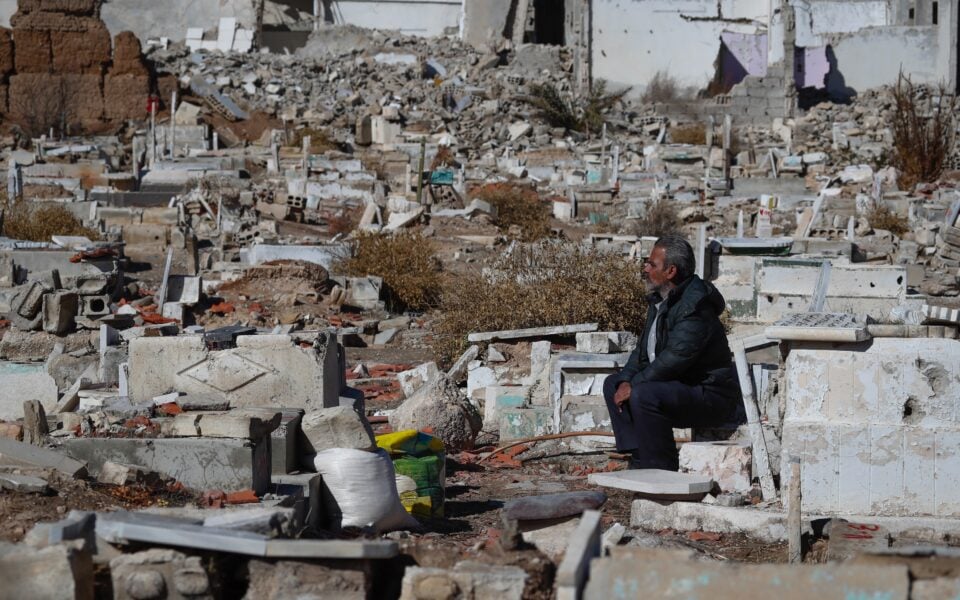
A man visits the grave of a relative at the cemetery in Jobar, a suburb of Damascus that was heavily bombed by the Assad regime during the war, on February 6, 2025. [Omar Sanadiki/AP]
The European Union is advancing plans to lift long-standing sanctions on Syria, but with conditions reflecting concerns from Greece and Cyprus over territorial and minority rights.
According to diplomatic sources, both nations are seeking a “review clause” that would allow for the immediate reinstatement of sanctions if the Syrian government, led by a transitional Islamist administration, fails to honor its commitments.
Greece and Cyprus have demanded guarantees for religious minorities, women’s rights, inclusivity, and territorial integrity. They are also pushing for safeguards against moves that could harm their interests, such as Syria signing a maritime agreement with Turkey. Both countries want these concerns explicitly detailed in the EU’s legal framework, expected to be finalized by the end of February.
Diplomatic sources confirmed Monday that a “silent agreement” has been reached within the EU to shift deliberations from regional expert groups to the legal refinement team of the European Council (Relex). This decision reflects the recognition of Greece’s and Cyprus’ concerns as “legitimate” by European diplomats.
Athens and Nicosia initially expressed reservations about lifting sanctions on Syria, despite endorsing a political agreement on January 27 to start the process. Since December, they have voiced concerns about Turkey’s influence in Syria and fears of a potential maritime agreement between Turkey and Syria that could undermine Cypriot rights in the Eastern Mediterranean.
Greek and Cypriot officials emphasize they are not opposed to lifting sanctions but want clear assurances to protect Syrian Christians, prevent Turkey from imposing maritime agreements at the expense of EU member-states, and guarantee these safeguards are explicitly documented.
European diplomatic officials also noted the inclusion of a “reversibility mechanism” in the proposal. EU foreign policy chief Kaja Kallas has stressed, “While our goal is to move swiftly on lifting sanctions, we are also ready to reverse course if the situation deteriorates.” Six member-states, including Germany, France and Spain, have supported this approach through a joint non-paper initiative led by Berlin.
The EU’s effort aims to send a political signal of support for Syria’s reconstruction. Some member-states see investment opportunities, others geopolitical gains, and some hope for quicker refugee returns, a European diplomat commented.
Despite optimism, concerns persist about security risks and the re-emergence of terrorist groups. EU sources emphasized that lifting sanctions will be a gradual process, with a comprehensive review planned for May.